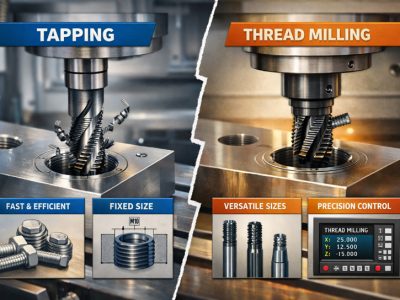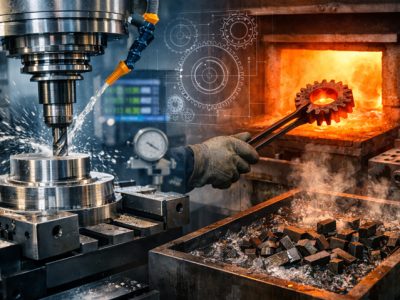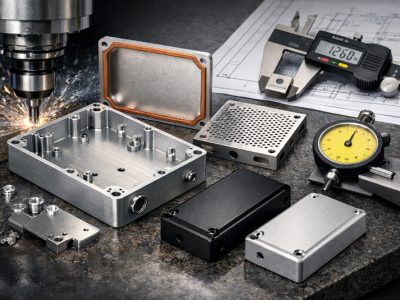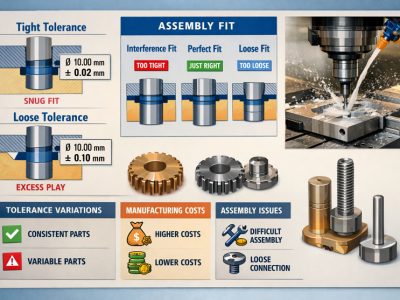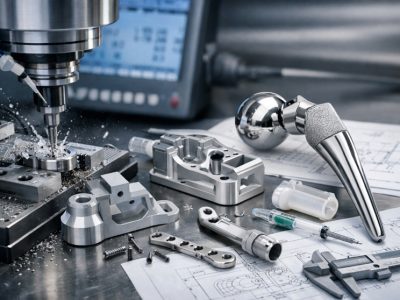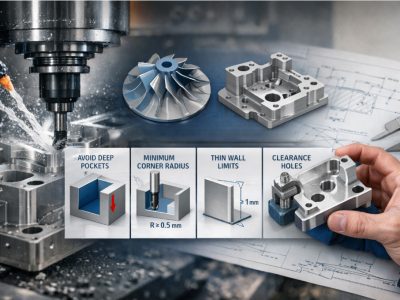Seeking a trustworthy manufacturer for CNC turned parts? This guide explores top industry players, showcasing their abilities, services, and distinctive features. It covers everything from custom machining to components of high precision, providing you with the finest selections tailored to your unique requirements.
Key Takeaways
Leading manufacturers in CNC turning, such as Yijin Hardware and Pioneer Service, prioritize quality and precision, establishing themselves in various industries.
CNC turning offers benefits including high precision, consistency, and cost efficiency, making it essential for sectors like automotive, aerospace, and medical devices.
The CNC turning process includes crucial steps like setup, machining operations, and quality control, ensuring that components meet exact specifications and industry standards.
Leading CNC Turned Parts Manufacturers in 2025
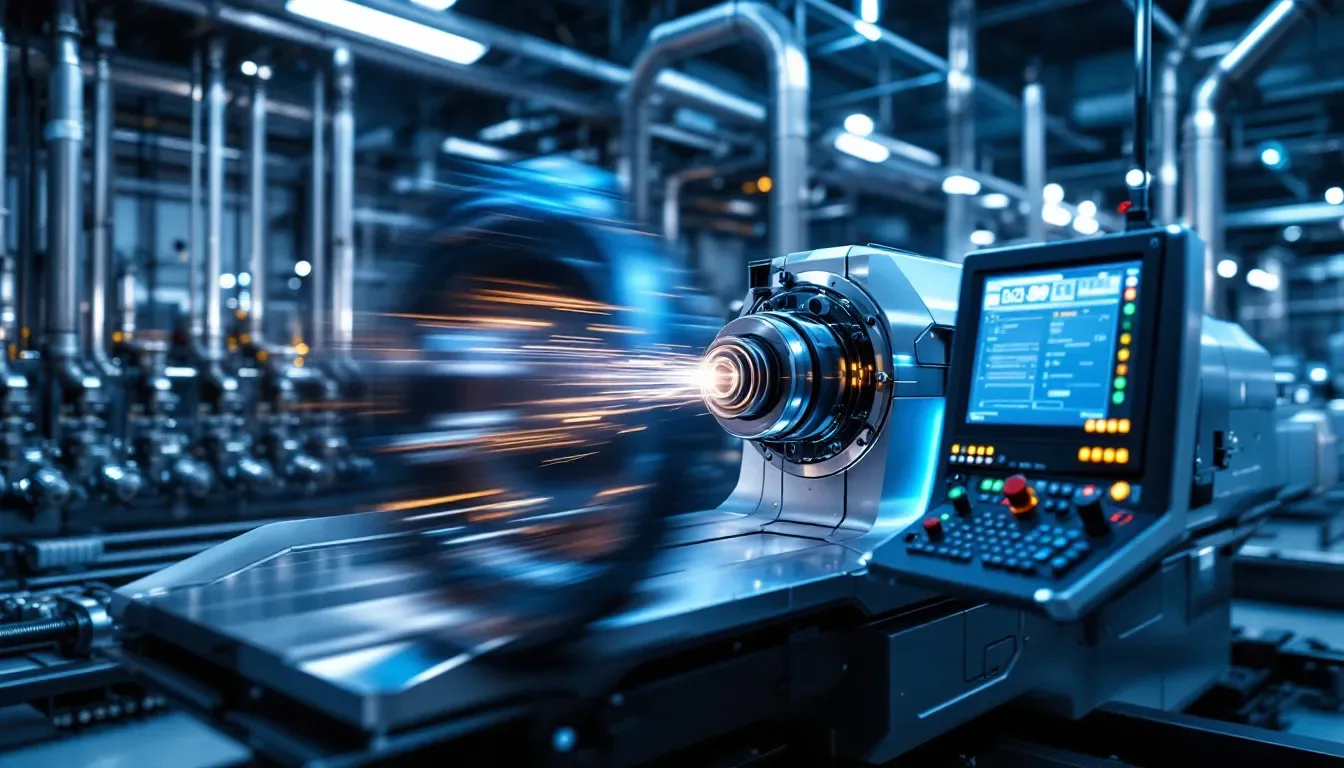
Choosing an appropriate manufacturer for CNC turned components guarantees the superior quality and accuracy of your parts.
By 2025, a number of firms have distinguished themselves as leaders in the industry due to their outstanding CNC turning capabilities, pioneering methods, and strict adherence to quality standards.
LKprototype Model Co., Ltd.
Whether it is prototyping, small batch production or large-scale manufacturing, we provide a wide range of manufacturing services to meet various needs. With a team of skilled engineers and state-of-the-art infrastructure, LKPrototype ensures a seamless transition from concept prototype to final product, saving customers time, effort and resources.
need help? Contact Us: [email protected] Need a PROTOTYPE or PARTS machining quote? Quote now
Yijin Hardware Co., Ltd.
Yijin Hardware Co., Ltd. has established itself as a leading entity within the CNC machining sector, operating out of both Shenzhen and Homestead, FL. The company excels in offering tailored CNC machining services, delivering precision machined components that cater to the distinctive needs spanning multiple industries.
The firm’s commitment to excellence and forward-thinking approach positions it as a preferred provider for entities in search of dependable, superior-quality machined parts.
Pioneer Service
Since its inception in 1990, Pioneer Service has earned a distinguished name for itself in the realm of CNC turning. Holding esteemed certifications including AS9100D and ISO9001:2015, they have cemented their status as a dependable provider for sectors that demand highly accurate and consistent CNC turning services.
Pioneer Service sets itself apart within the bustling marketplace of CNC machining by prioritizing precision and quality above all else, making them stand out among competitors offering similar services.
Technox Machine & Manufacturing, Inc.
Since its inception in 1976, Technox Machine & Manufacturing, Inc. has emerged as a frontrunner in the CNC machining sector, consistently upholding the highest standards of quality. The company is distinguished for providing precision CNC turning services through sophisticated CNC lathes capable of fabricating parts that meet stringent tolerances and complex designs. Their broad spectrum of services encompasses not only turning and milling, but also custom machining solutions, cementing their status as a dependable collaborator across diverse industries.
Technox’s unwavering commitment to superior quality and innovation positions them to fulfill the exacting demands common in sectors such as aerospace and automotive manufacturing. Leveraging vast expertise coupled with state-of-the-art technology, Technox serves as an industry benchmark when it comes to producing high-caliber turned parts via advanced CNC processes.
CNC Turning Capabilities and Services
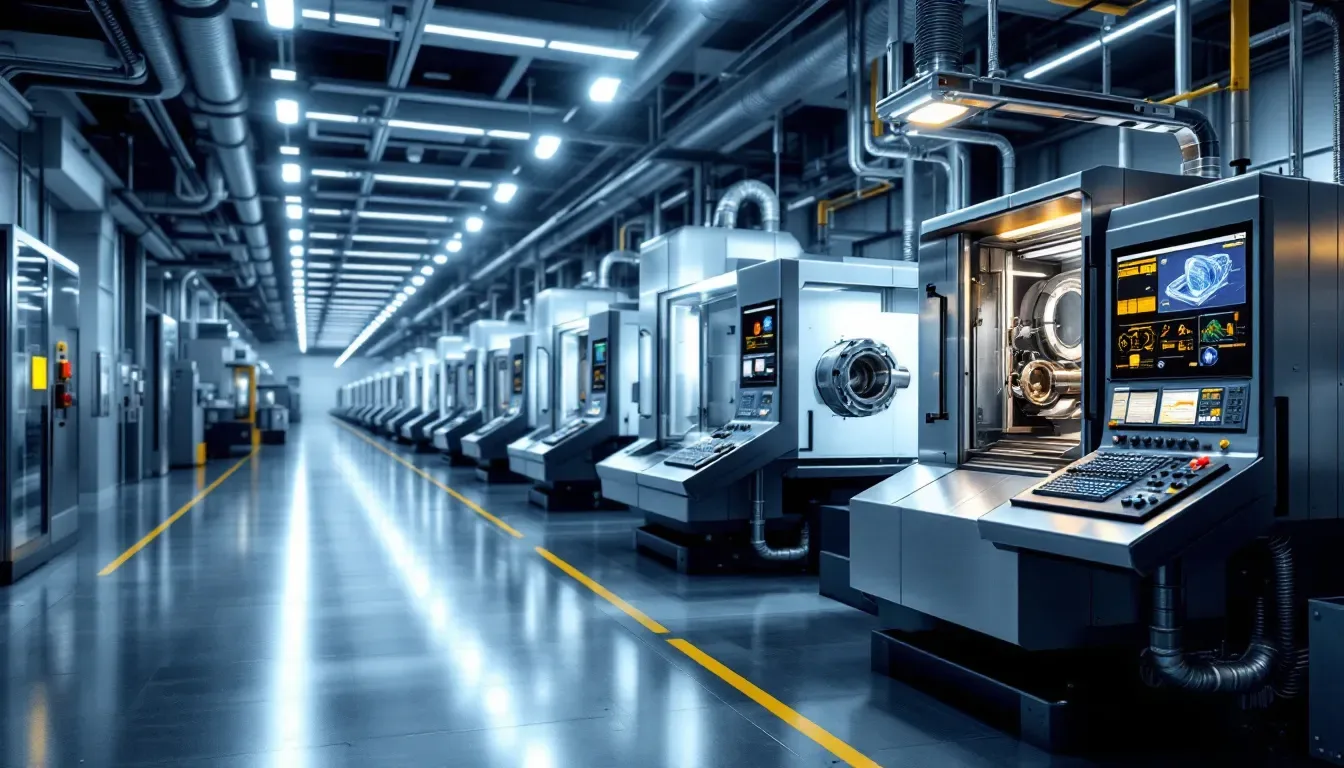
CNC turning is a versatile and precise machining process that offers a range of capabilities and services to meet diverse manufacturing needs. Using rotating cutting tools and advanced CNC lathes, manufacturers produce high-quality parts with exact specifications and tight tolerances.
Let’s explore the key capabilities and services offered by leading CNC turning providers.
High Volume Production
CNC turning excels in the ability to produce large quantities, enabling manufacturers to quickly create thousands of uniform, high-quality parts. The precision and automation provided by CNC machines ensure that industries requiring substantial volumes of quality components can maintain efficiency and cost-effectiveness throughout their manufacturing processes.
Custom Machining
CNC turning services provide custom machining that enables the creation of CNC turned components with unique dimensions and shapes tailored to meet exact specifications for various projects. By delivering personalized solutions, providers of CNC machining can serve an extensive array of industries and applications, guaranteeing that each component is ideally matched to its designated function.
Precision CNC Turning Services
Applications demanding high accuracy and stringent tolerances rely heavily on precision CNC turning services. These services are capable of reaching micrometre-level precision, which is particularly suitable for fabricating complex geometries in parts while adhering to rigorous quality standards.
This exceptional degree of precision is attained through sophisticated machining methods combined with strict quality control protocols.
Materials Used in CNC Turning
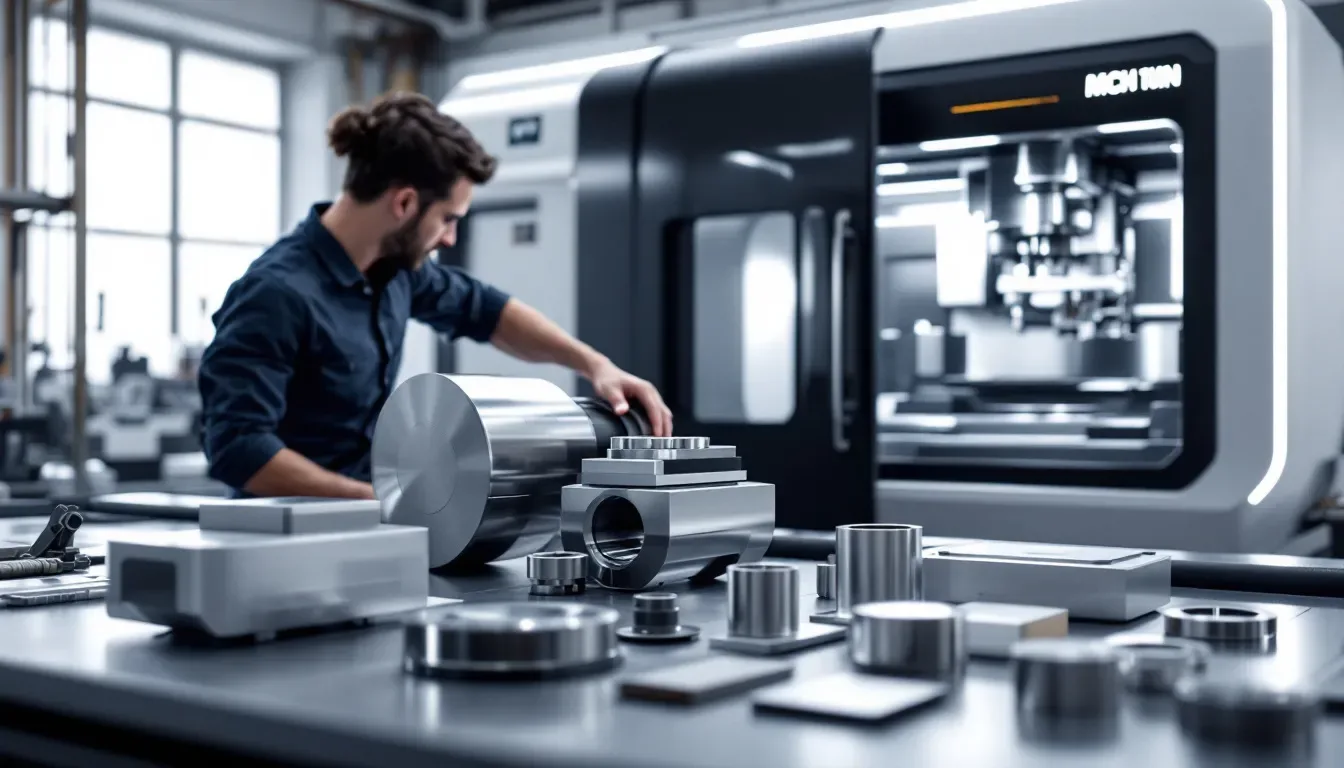
The selection of materials for CNC turning is crucial as it influences the final part’s quality, longevity, and suitability for its intended purpose. Various materials are employed in this manufacturing process due to their distinct characteristics that render them appropriate for certain applications.
We will delve into the prevalent materials utilized in CNC turning along with the benefits they provide.
Metals
In the realm of CNC turning, metals are frequently chosen for their advantageous mechanical characteristics. Materials such as stainless steel, aluminum, carbon steel, and lead-free brass are favored owing to their robustness, ease of machining, and ability to resist corrosion.
Specifically speaking about brass, it is an economical option well-suited for crafting precision components that require intricate shapes. Conversely, stainless steel stands out due to its enduring nature and resistance to wear, which makes it a valuable choice in CNC applications.
Plastics
CNC turning commonly utilizes materials like nylon, polycarbonate, and PEEK due to their beneficial characteristics. These plastics offer the perks of being light in weight, resistant to chemicals, and easy to machine. Nylon is particularly valued for its ability to resist wear, ensuring it fits a multitude of uses. Conversely, polycarbonate is sought after for its strong resistance against impacts and lasting durability.
Other Materials
CNC turning has the capability to work with a diverse array of materials, extending beyond metals and plastics to include wood. This versatility allows for the creation of both decorative and functional components tailored to custom specifications.
The adaptability exhibited by CNC turning in processing different types of materials showcases its utility in catering to unique requirements for specific projects.
Industries Served by CNC Turned Parts Manufacturers
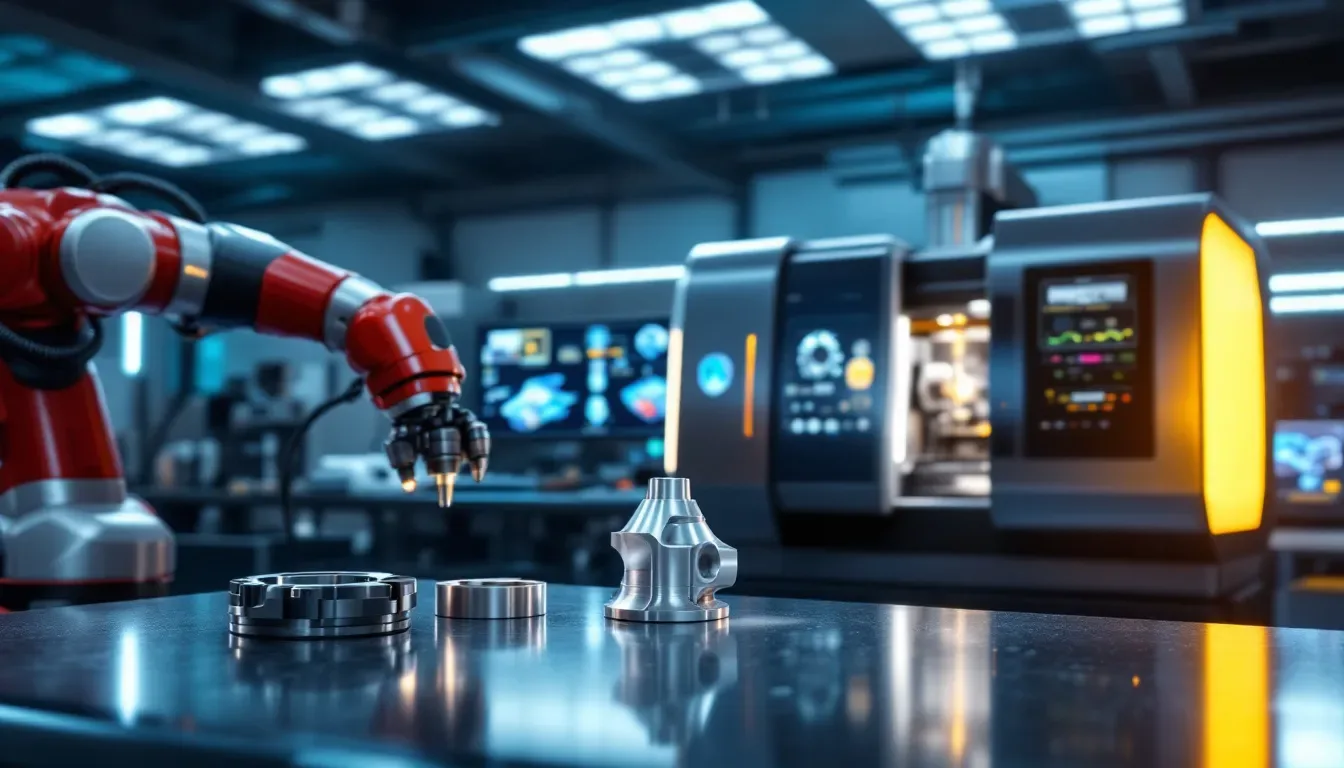
Components that have been CNC turned play an essential role in a multitude of industries because they are characterized by their high precision, robustness, and adaptability. These parts produced through CNC turning processes are key to maintaining the performance and dependability of various components across different sectors.
We will take a look at the advantages that diverse industries gain from utilizing parts fabricated using CNC turning.
Automotive
CNC turning is a critical process in the automotive sector, extensively utilized for the high-volume production of components with precision. The CNC turned parts play a vital role within key automobile systems including engines, transmissions, and brakes, which require adherence to strict quality standards and uniformity.
Through CNC turning, it is ensured that every part produced aligns precisely with the necessary specifications to ensure superior performance.
Aerospace
In the aerospace sector, crafting intricate components such as turbine blades and landing gear demands a high degree of precision to adhere to rigorous safety and performance requirements. The precise accuracy required for these complex parts is delivered through CNC turning, which is essential in meeting the exacting standards of aerospace applications.
The ability of CNC turning to achieve tight tolerances renders it indispensable within this industry.
Medical Devices
CNC turned parts are vital in the medical device industry, where components must comply with strict regulatory standards to ensure functionality and safety. CNC machining ensures the reliability and accuracy of devices such as surgical instruments and implants, which are critical for patient care.
The precision and consistency of CNC turning make it perfect for producing high-quality medical components.
The CNC Turning Process
Grasping the intricacies of the CNC turning process reveals its effectiveness and meticulous nature. This method encompasses phases such as preparation, coding, execution of machining maneuvers, and ensuring adherence to stringent quality standards, all essential for fabricating parts with superior quality.
Setup and Programming
Ensuring precision and accuracy in machining requires meticulous setup and programming of CNC lathes. This process necessitates the correct alignment of the workpiece, choosing suitable tooling, and implementing programs that dictate the paths for machining. Adequate preparation guarantees that the CNC lathe functions at its best configuration, reducing mistakes and attaining specifications as intended.
Machining Operations
CNC turning incorporates several machining processes, including facing, drilling, boring, threading and grooving to sculpt the workpiece into its intended design. These techniques are executed with precision down to micrometre accuracy, which is essential for applications that demand adherence to exact specifications.
The attainment of tight tolerances in CNC machining is critical as it guarantees that the finished parts conform to stringent quality standards.
Quality Control
Ensuring that all components conform to strict quality standards is a fundamental aspect of the CNC turning process. This involves conducting checks for dimensional accuracy, rigorously controlling processing variables, and performing detailed inspections before any parts are dispatched from the production site.
The utilization of automated CNC technology markedly diminishes the likelihood of human error, which in turn guarantees that every piece produced adheres closely to the exact specifications outlined in its design.
Benefits of CNC Turned Parts
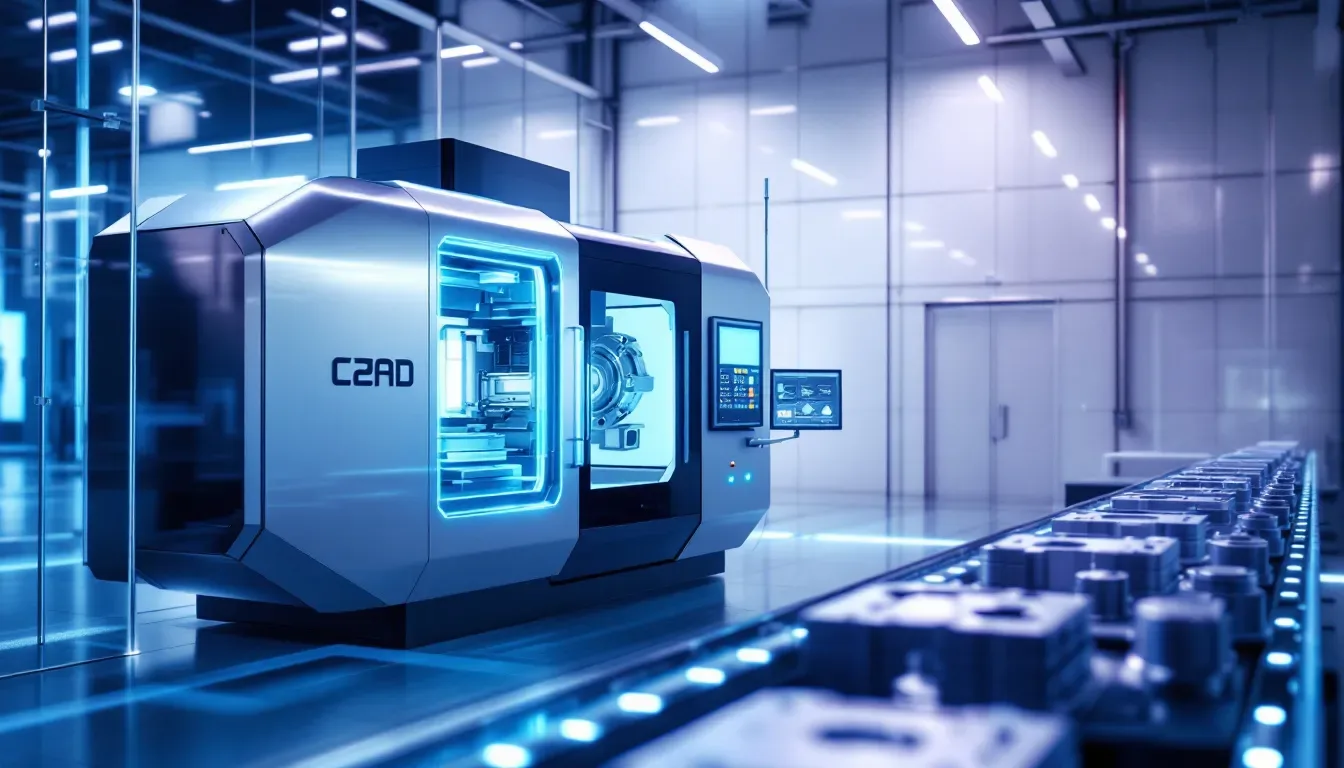
CNC turning is widely embraced in modern manufacturing across various industries due to the numerous advantages it provides, including high precision and cost efficiency. These benefits make CNC turned parts a favored option for different industrial applications.
High Precision
CNC turning is capable of achieving extremely tight tolerances, reaching as precise as 0.0001 inches, which significantly outperforms manual machining processes. This elevated level of CNC precision guarantees that even the most complex parts are produced to meet their exact specifications, rendering CNC turning particularly suitable for applications that demand intricate designs and stringent tolerance requirements.
The process’s ability to generate high-quality prototypes with exceptional accuracy and a variety of material choices only increases its attractiveness.
Consistency and Repeatability
CNC turning offers the significant benefit of uniformity and precision due to its automated nature and stringent quality control protocols. These aspects ensure that every component produced adheres strictly to specified requirements, upholding elevated standards in production. Such consistency is vital for sectors needing substantial volumes of identical components, as it ensures each batch maintains consistent quality throughout various manufacturing cycles.
Cost Efficiency
By minimizing material waste and refining cutting tactics, CNC turning decreases production expenses. The accuracy of the CNC machines’ cutting tool guarantees that excess material is not removed, thus reducing the costs associated with production.
Flaws are detected at an early stage during the design process thanks to CNC prototyping. This detection helps avoid expensive redesigns and improves overall productivity.
How to Order CNC Turned Parts
To guarantee that the CNC turned parts you order fulfill your precise specifications, it is essential to undertake several steps. These include uploading Computer-Aided Design (CAD) files, choosing appropriate materials for the components, and obtaining quotes as part of a successful ordering process.
Uploading CAD Files
To commence an order for CNC turned parts, the initial action is to upload CAD files. For optimal compatibility with CNC machining processes, it’s crucial to refine these CAD files by eliminating extraneous layers and verifying that all measurements are precise. The preferred formats tend to be STEP and IGES due to their widespread acceptance across manufacturing systems.
Supplying meticulous and exact CAD files enhances both the efficiency of the machining process and the precision of cost estimates provided by manufacturers.
Selecting Materials and Finishes
Selecting appropriate materials and finishes is essential for ensuring the functionality and aesthetic qualities of your CNC turned components. Metals like stainless steel, aluminum, and lead-free brass each possess distinct characteristics that make them ideal for different applications. Alternatively, plastics such as ABS and nylon are advantageous options due to their lightness and resistance to corrosion.
Applying surface treatments such as anodizing or plating can improve both the resilience and visual appeal of your parts, thereby making them more fitting for particular settings and purposes.
Requesting Quotes and Finalizing Orders
Upon submitting your CAD files and choosing the suitable materials and finishes, proceed to solicit quotations. This step could require dialogue with production entities to confirm that all specifications are comprehensively apprehended. Certain platforms may provide immediate pricing estimates, while others might necessitate a waiting period of one to two days.
After obtaining a quotation, meticulously scrutinize every element to verify its concordance with your stipulated demands prior to confirming the purchase. Precise communication coupled with an exhaustive examination is crucial in averting misconceptions and guaranteeing that the final parts correspond precisely with your anticipated outcomes.
Rapid Prototyping with CNC Turning
CNC turning offers the substantial benefit of rapid prototyping, which enables swift alterations and successive iterations in product development. This capability helps manufacturers accelerate their time to market with new products and adapt more efficiently to evolving consumer demands.
Fast Production Times
Modern manufacturing has been revolutionized by the capacity for rapid production of CNC prototypes. Production periods can be as brief as a single day, coupled with an impressive rate of on-time delivery. By reducing setup duration and employing automation, CNC turning surpasses traditional methods in terms of speed.
Such rapidity is critical when faced with stringent deadlines and hastening the introduction of new products to market, rendering CNC turning an indispensable tool for rapid prototyping within the industry.
Design Verification
Using CNC turning for prototyping is essential to confirm designs prior to initiating mass production. Crafting accurate prototypes permits designers to check the design’s shape, compatibility, and operational capacity, guaranteeing that it fulfills all requirements and functions as expected.
This phase is vital in recognizing possible problems at an early stage of product development. Addressing issues promptly can conserve time and resources over time.
Small Batch Production
CNC turning is also ideal for small batch production, particularly for design verification or market testing. Producing small batches allows manufacturers to test the waters without committing to large-scale production, offering flexibility and reducing risk.
This capability is particularly beneficial for startups and companies looking to refine their products before a full market release.
Value Added Services in CNC Turning
CNC turning producers augment their portfolio by offering value-added services designed to elevate the quality, speed, and ultimate client satisfaction of products. These extra services go beyond conventional machining tasks and contribute substantial value to the end product.
Surface Treatments
Enhancing the endurance and visual appeal of CNC turned parts is vital, which can be achieved through various surface treatments. Bead blasting delivers a smooth matte texture, whereas processes such as anodizing and plating enhance both the aesthetic value and protection against corrosion.
Such treatments guarantee that the final components not only comply with operational specifications but also possess preferred aesthetic and haptic characteristics.
Assembly Services
Manufacturers that provide CNC turning also offer assembly services, which facilitate the production process by integrating separate machined parts into fully assembled products. This ensures that all components are correctly fitted and operational as designed, minimizing the need for Assembly by clients.
These services are especially beneficial for intricate parts and products that require accurate assembly of numerous components.
Packaging and Shipping
It is crucial to employ robust packaging and shipping methods to safeguard CNC turned parts while they are being transported. To avoid any harm and guarantee that the turned parts reach their destination in pristine condition, producers make use of specific packing choices like wooden crates and vacuum sealed packages.
For CNC turned parts with distinctive forms or specific requirements, tailored packaging solutions are provided to ensure that these items are delivered safely and securely.
Summary
CNC turning offers unparalleled precision, consistency, and efficiency, making it a cornerstone of modern manufacturing. From high-volume production to custom machining and value-added services, CNC turning meets the diverse needs of various industries. By understanding the capabilities, materials, and processes involved, businesses can make informed decisions and leverage CNC turning to achieve their production goals. Whether you’re looking to prototype a new design or produce high-quality parts in large volumes, CNC turning provides a reliable and cost-effective solution.
Frequently Asked Questions
What is the fastest production time for CNC prototypes?
The fastest production time for CNC prototypes can be as short as 1 day, ensuring a high on-time delivery rate of 97.4%.
What materials can be processed using CNC machining?
CNC machining is adept at handling a variety of materials such as metals, plastics, and wood, providing adaptable solutions for numerous applications.
Its ability to work with an array of substances renders it an essential technique within the realms of manufacturing and production.
How does CNC prototyping minimize production costs?
CNC prototyping effectively minimizes production costs by allowing for the early identification of flaws and enabling efficient iterations, which optimize materials and processes while reducing risks.
This approach leads to significant cost savings in the overall production cycle.
What are some common industries that use CNC turned parts?
The automotive, aerospace, medical device, consumer electronics, and industrial equipment sectors extensively use CNC turned components. These industries depend on precision-manufactured parts to guarantee their products perform efficiently and effectively.
Why is CNC turning preferred over 3D printing for prototypes?
Due to its exceptional accuracy and a more extensive selection of material choices, CNC turning is preferred over 3D printing for creating prototypes. It provides greater precision and improved functionality throughout the prototype development phase.

Start your project with LKprototype
LKprototype company simplifies procurement for custom manufacturing, Suitable for making your products or prototypes with a variety of materials, such as metal or plastic, silicone rubber, from 3D Printing to CNC Machined Parts and Urethane Casting Service , with a focus on speed and efficiency. Our platform provides instant quotes. With LKprototype, You can connect with the team to communicate your project to ensure quality and on-time delivery.
Start with an instant quote and experience how our technology and expertise can make custom part procurement faster and easier.
 LKprototype
LKprototype

